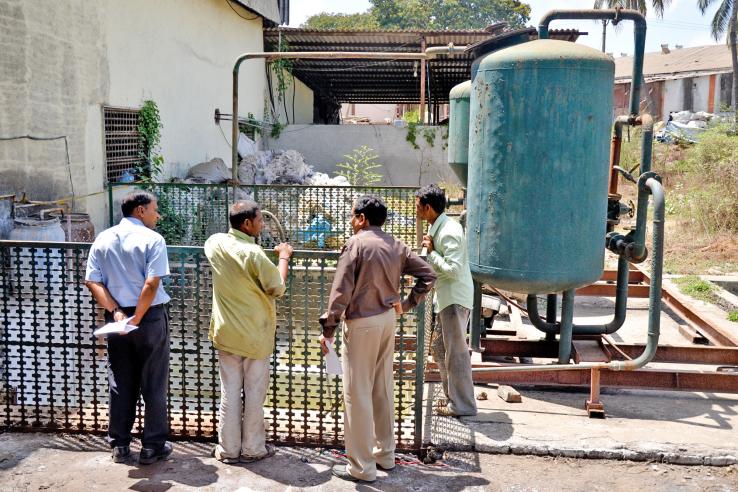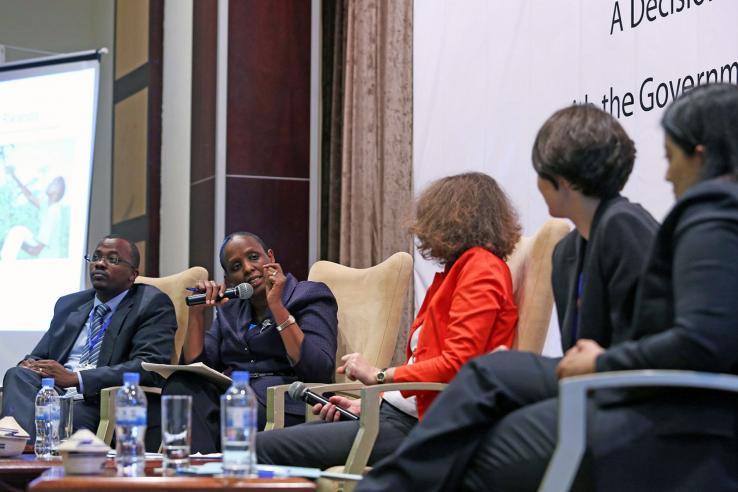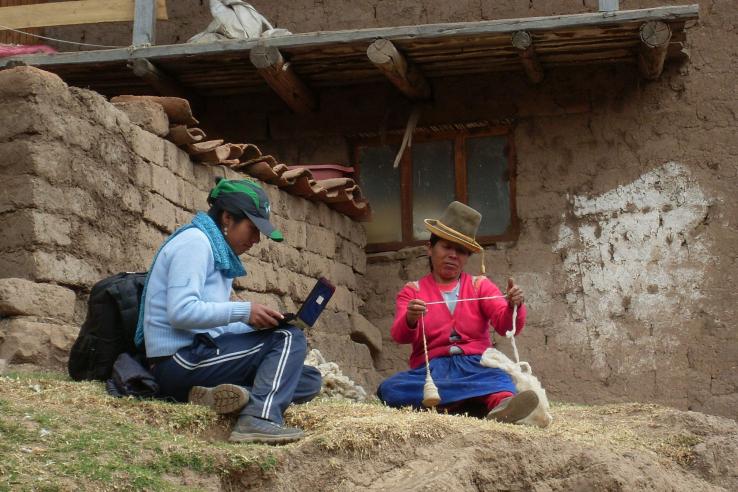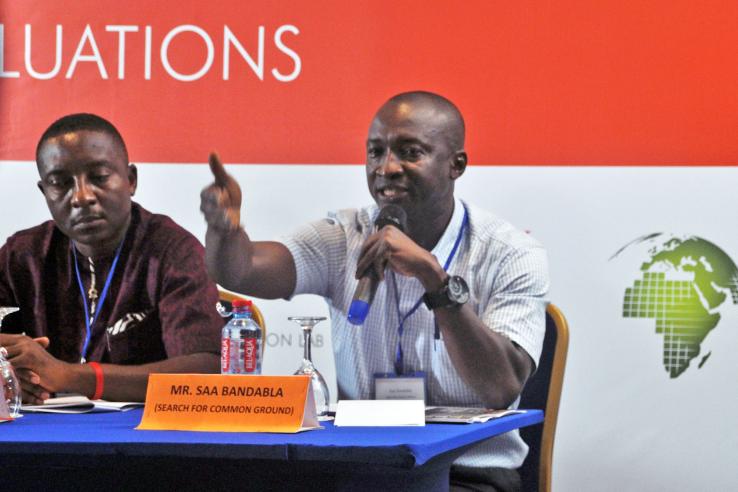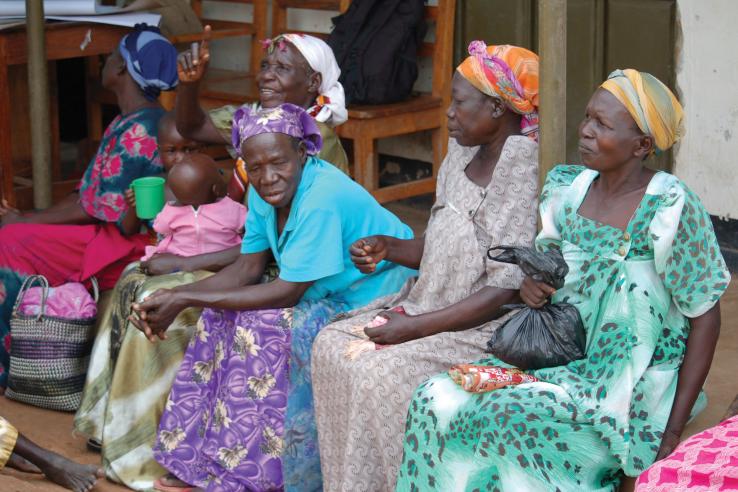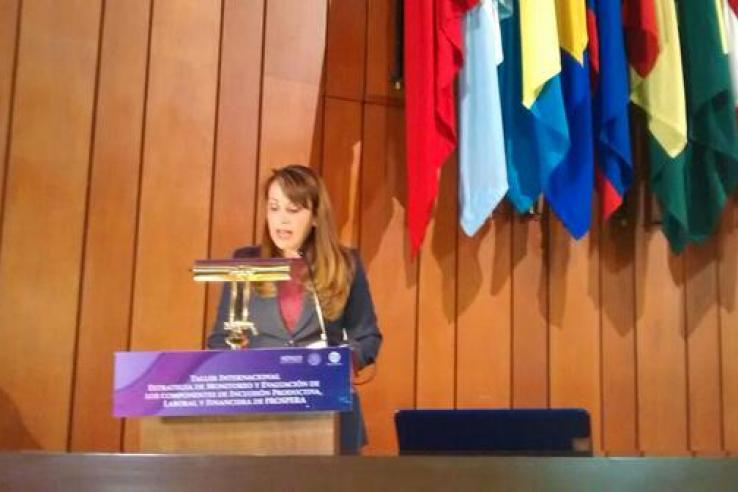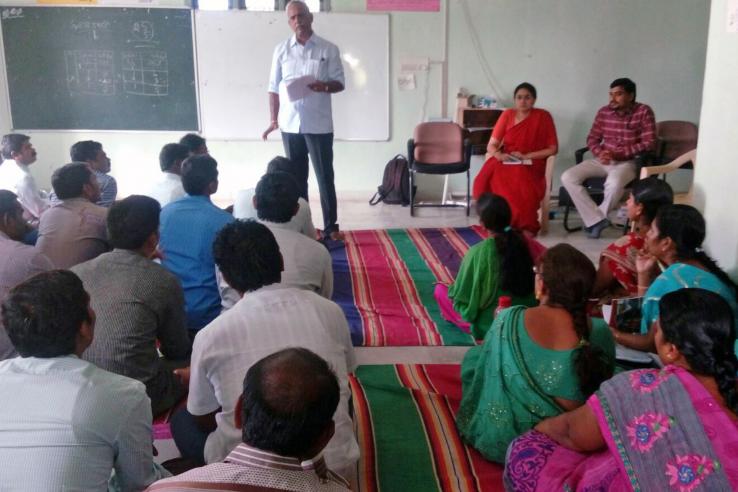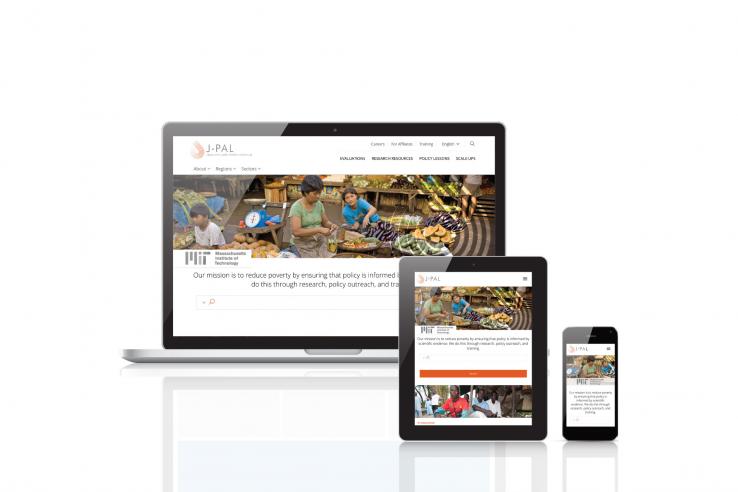Displaying 1741 - 1755 of 8491
Update
J-PAL Updates
New policy briefcase: Exposing corrupt politicians; new paper on J-PAL's cost-effectiveness methods; J-PAL collaborates with South African government on labor market research.
Update
J-PAL Updates
Environmental authorities in Gujarat, India, reform their environmental auditing system based on findings from a large-scale randomized evaluation conducted in partnership with J-PAL affiliates from Harvard, MIT, the University of Chicago, and Yale. The new guidelines require environmental auditors...
Update
J-PAL Updates
Created thanks to a generous grant by Community Jameel, GPI will expand work with the biggest players in social and development policy—governments—to design, evaluate, and scale up programs that aim to reduce poverty. "Many governments are eager to innovate and test new approaches to fighting...
Update
J-PAL Updates
White House supports use of behavioral science insights in policymaking | Researchers discuss field experiments in labor economics and social policies at Paris conference | Featured Professor: Lisa Cameron | J-PAL Africa Executive Education: January 18-22, 2016
Update
J-PAL Updates
A new six-country study shows a comprehensive approach for the ultra-poor, the approximately one billion people who live on less than $1.25 a day, boosted livelihoods, income, and health. Published in Science, the research tested the effectiveness of an approach known as the “Graduation model” in...
Update
J-PAL Updates
“The new J-PAL initiative is a fantastic opportunity for governments who want to better understand the impact of their programs,” said Linda Gibbs, Principal at Bloomberg Associates and former New York City Deputy Mayor of Health and Human Services. Learn more about J-PAL North America's State and...
Update
J-PAL Updates
This month we hosted an event in Ghana where experts discussed evidence on voter information and engagement programs, and we welcome new Executive Directors at J-PAL North America and Southeast Asia and four new affiliated professors.
Update
J-PAL Updates
New briefcase on short and longer-term impacts of community monitoring in Uganda | J-PAL, RISE, and the World Bank host French-language impact evaluation training in Cote d’Ivoire | Featured Affiliate: Judd Kessler | Chris Blattman, Rachel Glennerster, Edward Miguel at the Annual Bank Conference on...
Update
J-PAL Updates
Cabinet Office of Zambia convenes seminar with IPA and J-PAL | New briefcase on public and private job counseling in France | J-PAL welcomes new affiliated professors | Deworming: An informed debate requires a careful look at the data
Update
J-PAL Updates
Mexican leaders discuss the evaluation strategy and the future of PROSPERA at international event | New policy bulletin on building stable livelihoods for the ultra-poor | New policy briefcase on flood-tolerant, risk-reducing rice variety in India | Featured Affiliate: Nick Ryan
Update
J-PAL Updates
New initiative offers US policymakers funding and technical expertise to solve key social problems | J-PAL hosts two training courses in the Middle East | Shawn Cole receives Aspen Faculty Pioneer Award
Update
J-PAL Updates
The evidence-based program aims to improve basic reading and numeracy skills in primary schools by re-organizing children according to ability instead of age or grade, and providing focused, tailored instruction.It will be introduced in over 1,600 government schools in the district of Anantapur...
Update
J-PAL Updates
A website and logo for the New Year | Government of Andhra Pradesh to scale up 'Teaching at the Right Level' with Pratham and J-PAL South Asia at IFMR | Responding to Risk: HIV Prevention and Male Circumcision | North America wrap-up of evidence: from crime to voting | Featured Affiliate: Amy...
